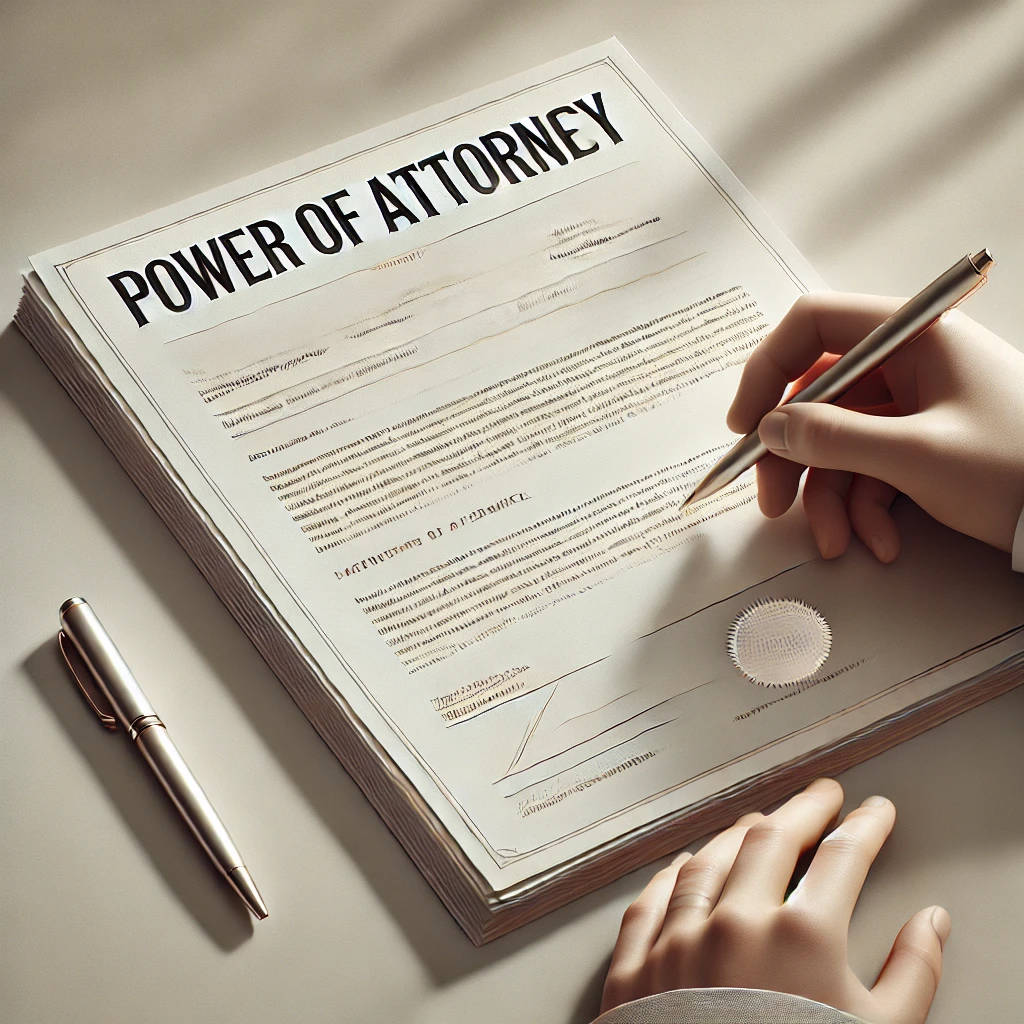Understanding the limitations of Power of Attorney is important to protect the interests of those involved and the principle’s intent. A Power of Attorney (POA) is a legal document that gives one person, known as the agent or attorney-in-fact, the authority to act on behalf of another person, known as the principal. While a POA is a powerful tool for managing financial, legal, and health-related matters, it has certain limitations.
Limitations on Scope
A Power of Attorney does not grant unlimited power. The principal defines the specific actions an agent can take, which can include financial transactions, property management, healthcare decisions, or legal representation. The type of POA chosen limits the exact scope:
- General Power of Attorney: A general POA provides broad authority but does not cover every aspect of the principal’s life. It is often limited to specific financial and legal actions and does not permit personal or health-related decisions unless explicitly stated.
- Limited (or Special) Power of Attorney: This type of POA grants the agent authority to perform only specific tasks, such as selling a property or managing a particular account. Once the task is complete, the authority ends.
- Healthcare Power of Attorney: A Healthcare POA authorizes the agent to make medical decisions if the principal is incapacitated. However, the agent cannot make decisions outside of healthcare matters.
The principal can further limit the agent’s powers by specifying certain actions or by setting restrictions within the POA document itself. While these are not the only types of POA available, these are some of the most common within estate planning.
Duration and Expiration
The duration of a Power of Attorney is not unlimited and often depends on the type of POA. Most standard POAs become invalid if the principal becomes incapacitated unless the document is labeled as durable. A non-durable POA is often for specific transactions and expires once the task is complete or if the principal loses mental capacity. A durable POA remains effective if the principal becomes incapacitated. However, it still expires upon the principal’s death or if the principal revokes it.
A Springing POA only takes effect under certain conditions, such as the principal’s incapacitation. However, once the condition is met, it functions like a durable POA until the principal’s recovery or revocation. A POA can be revoked by the principal at any time, provided they are mentally competent. All POAs automatically terminate upon the principal’s death, at which point control over the principal’s affairs shifts to their executor or estate administrator.
Limitations on Self-Dealing and Personal Benefit
Agents under a POA must act in the principal’s best interest and avoid self-dealing, which is using their authority to benefit themselves. For example, agents cannot transfer the principal’s assets to themselves unless the POA explicitly allows it. This limitation is to prevent abuse of power and conflicts of interest.
Most POAs do not automatically grant the agent the ability to make any gifts or transfers on behalf of the principal. If the principle wishes to give gifting authority, it must be specified in the POA, along with any limits or conditions. Violation of these limitations, or others, could lead to legal consequences for the agent, including claims of breach of fiduciary duty.
Limitations on Healthcare Decisions
A Healthcare Power of Attorney grants the agent authority over the principal’s medical decisions but comes with restrictions:
- End-of-Life Decisions: Some states require specific language or separate documentation for agents to make end-of-life decisions, such as life support.
- Mental Health Treatment: In some jurisdictions, healthcare POAs do not cover certain mental health treatments unless explicitly stated. Additionally, an agent cannot commit the principal to a mental health institution unless authorized by the document and state law.
- DNR Orders: Some POAs do not allow agents to issue “Do Not Resuscitate” (DNR) orders unless explicitly permitted.
The agent and principle should both be aware of what privileges are in the POA to avoid issues or confusion.
Legal and Regulatory Limitations of a Power of Attorney
Certain actions are beyond the scope of any Power of Attorney due to state and federal laws:
- Voting: An agent cannot vote on behalf of the principal, as voting rights are personal and non-transferable.
- Testamentary Decisions: An agent cannot create, alter, or revoke a will on behalf of the principal. Wills require the personal intent and testament of the individual.
- Illegal Actions: Any illegal act, including fraud or tax evasion, is beyond the scope of an agent’s authority.
If you’re unsure whether a specific action is doable under a POA, contact an estate planning attorney for clarification.
Tulsa Estate Planning Attorneys
While a Power of Attorney is a valuable tool, it has limitations to protect the principal’s interests and prevent misuse. The scope of authority, duration, and certain legal and ethical boundaries ensure that agents act within defined parameters. Both principals and agents should understand these limitations and ensure that the POA document is clear about the extent of the agent’s authority. Consulting a qualified attorney can provide clarity on drafting a POA that meets specific needs while respecting legal limitations.
Our team at Tulsa County Lawyers Group is here to help you choose the best POA for your situation and ensure it meets your needs. If you need help, contact us today by calling (918) 379-4864 or reach us online for a consultation.

